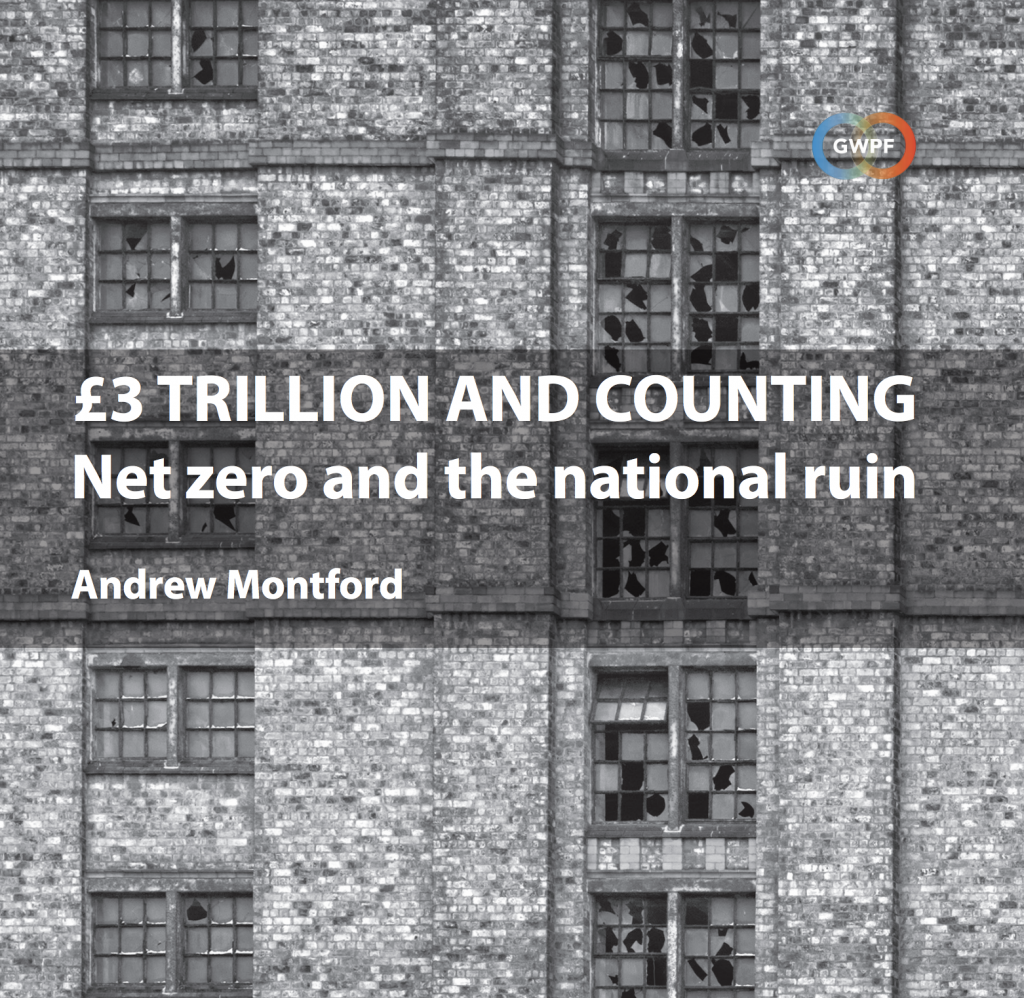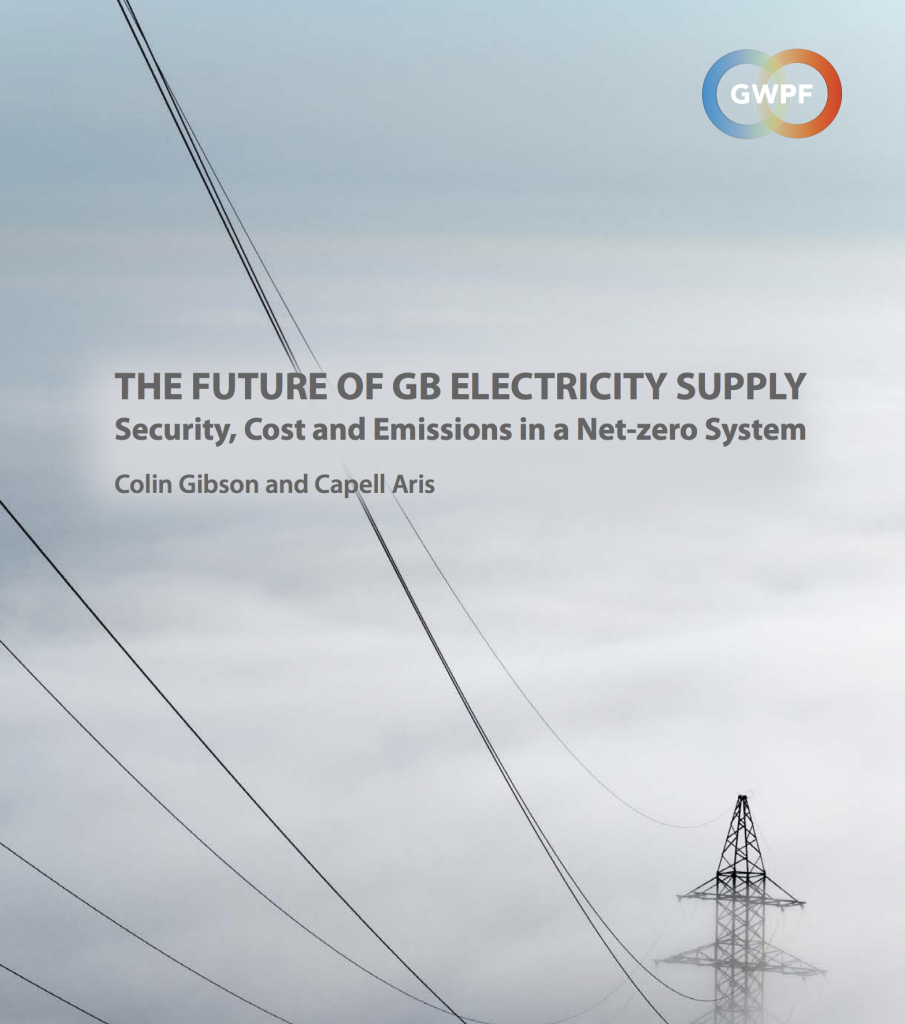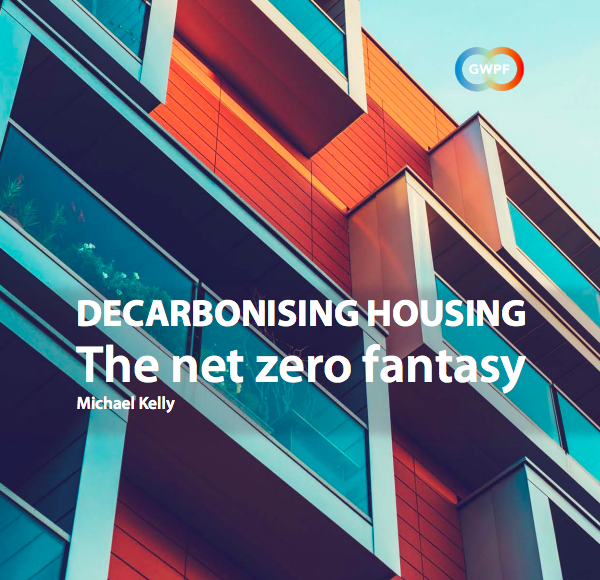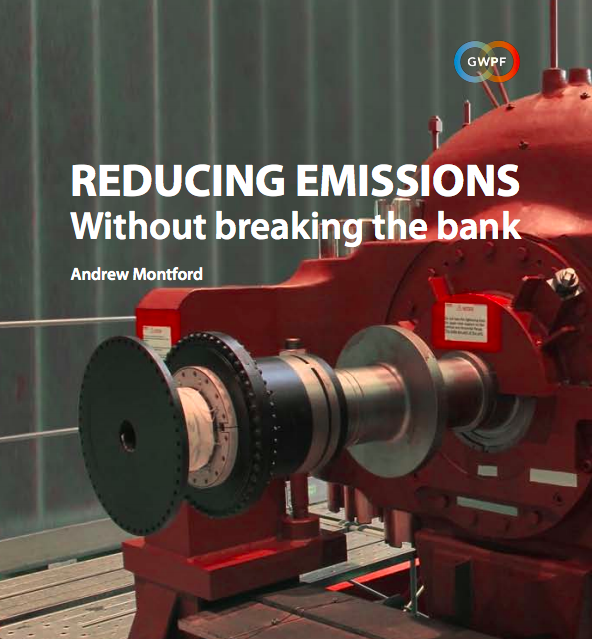Price will top £100,000 per household
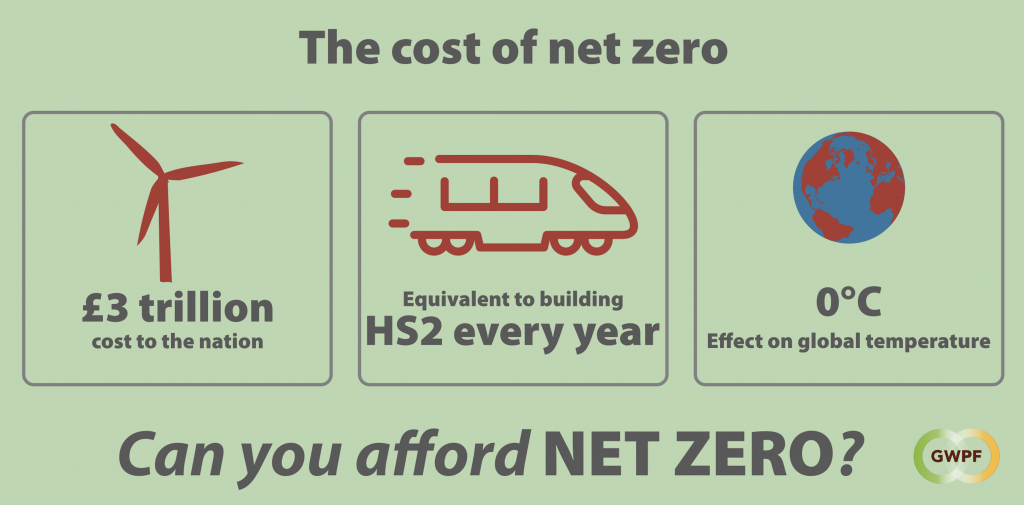
The cost of reaching the government’s “Net Zero” target will be astronomical for the UK economy. That’s according to analysis by two new reports published by the Global Warming Policy Foundation.
The reports find that decarbonising the electricity system and domestic housing in the next three decades will cost over £2.3 trillion pounds. The final bill will surpass £3 trillion, or £100,000 per household, once the cost of decarbonising major emitting sectors like manufacturing, transport and agriculture are included.
This is the equivalent of a £100 billion HS2 project every single year.
According to the Committee on Climate Change (CCC) the costs for Net Zero in 2050 are ‘manageable’: “…we estimate an increased annual resource cost to the UK economy from reaching a net-zero [greenhouse gas] target that will rise to around 1–2% of GDP by 2050.”
Yet, the CCC has resisted attempts to have its calculations disclosed under FOI legislation. Even more remarkably, it has admitted that it has not actually calculated a cost for the period 2020–2049. The decision by Parliament to undertake the complete decarbonisation of the UK economy is thus uncosted.
According to GWPF director Benny Peiser, the two new studies represent the first meaningful attempts to pin down the cost of net zero:
“Although the Committee on Climate Change claims that net zero can be achieved at modest cost, they have now quietly admitted that they have not actually prepared any detailed costing. Unfortunately, Parliament seems to have taken them at their word, and we are now embarked on a project that risks to bankrupt the country.”
Note for editors:
GWPF has today released a series of papers on the cost of Net Zero.
The Future of GB Electricity Supply: Security, Cost and Emissions in a Net-zero System, by former grid engineers Colin Gibson and Capell Aris, reports on a detailed costing exercise based around National Grid’s low-carbon scenarios, which deliver emissions close to net zero by 2050. The estimated cost of this project alone will be over £2 trillion.
Decarbonising Housing: The net zero fantasy, by Professor Michael Kelly FRS, looks at the problems of decarbonising domestic heat and concludes that retrofitting insulation to homes is a fool’s errand.
There is also a short introductory paper, £3 Trillion and Counting, which provides a brief summary of the two news GWPF papers and considers the implications for consumers.
A briefing entitled Reducing Emissions without Breaking the Bank covers new technologies that might deliver reduced greenhouse gas emissions at considerably lower cost.
